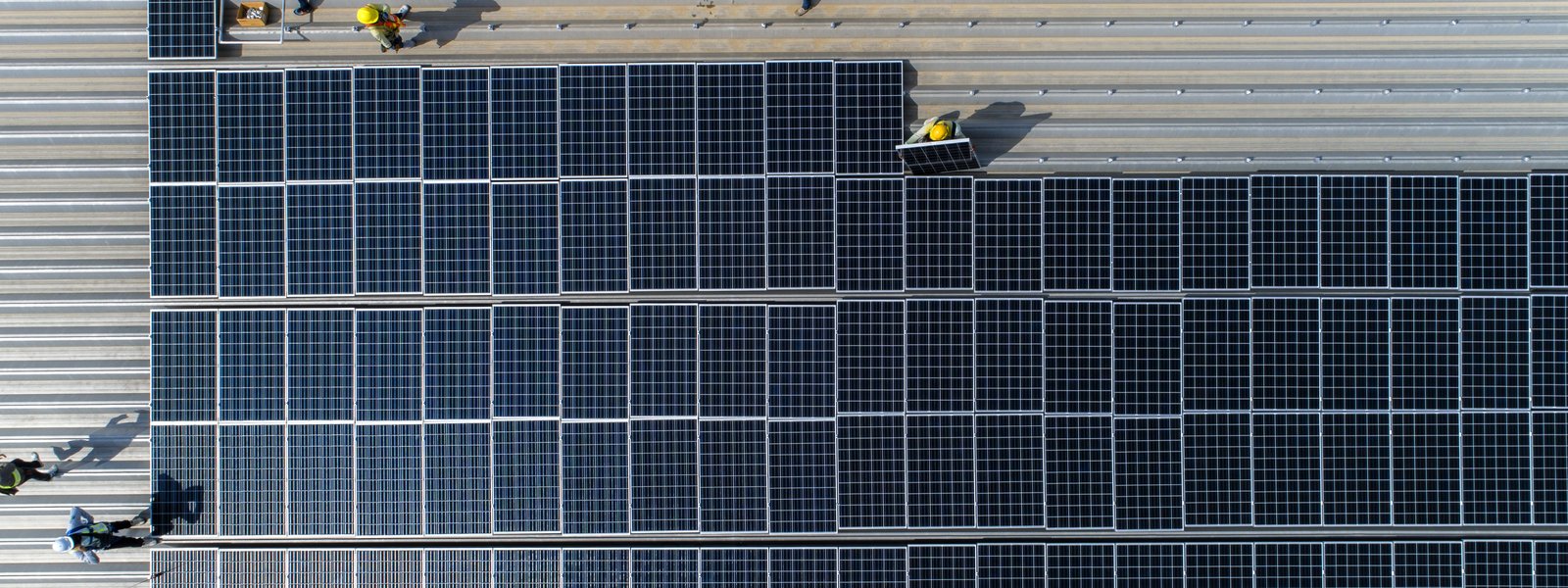Press Release
GSC: Finance systems are holding back solar’s potential

According to the latest position paper released by the Global Solar Council, urgent reforms to global finance systems are needed to unlock solar investments, especially in underserved regions and close the funding gap between developed and developing countries.
24 June 2025 – London | The Global Solar Council (GSC) released a new position paper today calling for urgent reforms to the financial architecture underpinning the solar sector. With solar PV expected to deliver nearly half of the renewable capacity needed to stay on a 1.5°C trajectory, the paper outlines 10 clear recommendations to accelerate investment flows, rebalance capital allocation, and ensure solar energy reaches every corner of the world — not just the wealthiest ones.
The paper, How to Finance Solar for All?, is the first comprehensive product of the GSC’s Finance Task Force, chaired by Jinko Solar, and draws from industry expertise, investor insights, and policy intelligence from across the globe.

“Finance must become the catalyst for energy equity — not a barrier,” said Sonia Dunlop, CEO of the Global Solar Council. “Our message to policymakers, development banks, and the private sector is simple: if we want to scale up solar deployment to 1 TW per year, we have to bring down the cost of finance for solar projects large and small around the world. A typical project that today gets 15% cost of finance needs to come down to 5%. We need to find ways of de-risking these projects.”
A Structural Finance Gap Threatens Global Solar Growth
Despite solar’s rapid growth — with global installed capacity reaching 1,865 GW in 2024 — the report warns that capital flows remain deeply unequal and structurally misaligned. While over $2 trillion was invested in clean energy in 2024, just 3% of global energy investments reached Africa. Countries like Nigeria face equity return expectations as high as 59.7%, compared to 8.3% in Germany.
The paper outlines how these disparities are not just economic — they are systemic. Capital is heavily concentrated in downstream project development, while upstream R&D, recycling, energy storage, and skills development remain underfunded. Meanwhile, fragmented ESG standards and inconsistent disclosure practices raise compliance costs and reduce access to finance, particularly for small and mid-sized players in emerging markets.
Key Recommendations: Rewire Global Finance for Solar Resilience
The report’s 10 recommendations chart a path to build a more inclusive, efficient, and resilient solar finance ecosystem. These include:
- Reinvigorating capital flows through public-private coordination, concessional finance, and de-risking instruments
- Correcting geographic and value chain imbalances by ensuring fair access to capital in high-risk markets and underfunded solar segments
- Streamlining ESG frameworks through global standardization and stronger disclosure tools
- Innovating financing models for emerging use cases such as solar-powered data centers, agrivoltaics, and floating PV
- Scaling solar-plus-storage through investment models that treat storage as core infrastructure — not an add-on
A Call to Action to Policymakers and the Finance Sector
The Global Solar Council urges governments, regulators, development finance institutions (DFIs), and multilateral banks to act decisively in reshaping the global financial ecosystem that underpins solar deployment. The cost of capital, risk appetite, and access to concessional tools cannot remain dictated by geography or GDP alone. Policymakers must lead the way in correcting systemic inequalities that prevent solar from flourishing where it is most needed.
Specifically, the GSC calls on public institutions to:
- Deploy concessional finance more strategically to unlock private investment in high-risk markets.
- Simplify and harmonize ESG compliance frameworks to reduce bureaucratic burden and improve access to capital for small and mid-sized solar actors.
- Adopt fairer investment standards that reflect the true development value of solar in emerging markets — including its impact on energy access, resilience, and job creation.
- Champion blended finance platforms that aggregate public and private capital with clear, transparent risk-sharing mechanisms.
- Support local financial systems and public procurement schemes that can catalyze distributed solar and solar-plus-storage solutions at scale.

“Finance is not neutral — it is a political and structural choice. If we are serious about delivering energy equity, climate action, and the SDGs, solar finance must become more inclusive, transparent, and future-ready", commented Lin Sun, Chair of GSC’s Finance Task Force and Head of Sustainability at Jinko Solar.
About the Global Solar Council
The Global Solar Council (GSC) is the united voice of the solar industry worldwide. As a non-profit trade body, our vision is to create a fair and sustainable world with solar at the heart of a new energy economy. Driven by our passion for a cleaner, more just world, we work as a community to ensure everyone’s voices are heard, advocating for swift progress to be made in the battle for the climate. We advise governments on the pressing issues central to the solar transition, including finance, grids, skills, sustainability and supply chains.
Get involved at www.globalsolarcouncil.org and follow us on LinkedIn, WeChat, and Instagram.
About GSC Finance Task Force
GSC created its Finance Task Force in 2024, chaired by Ms Lin Sun of Jinko Solar, with Ms Alina Lange from Trina Solar as Vice Chair. This group brings together members of the GSC - both national associations and companies - to discuss and address financing challenges and develop best practices and solutions to deploy in countries across the world.
The Task Force will publish a report at London Climate Action Week 2025, providing in-depth analysis on the solar finance landscape, and GSC's recommendations on how to scale and lower the cost of finance for solar PV globally.
About MioTech
MioTech is a leading sustainability data and technology company that leverages artificial intelligence to deliver ESG (Environmental, Social, and Governance) and climate data solutions. Serving financial institutions, corporations, and government agencies, MioTech helps organizations make informed decisions aligned with global sustainability goals by offering cutting-edge analytics, data integration, and automated ESG reporting tools.
![Global Solar Council [logo]](/static/images/gsc-logo-horizontal.svg)